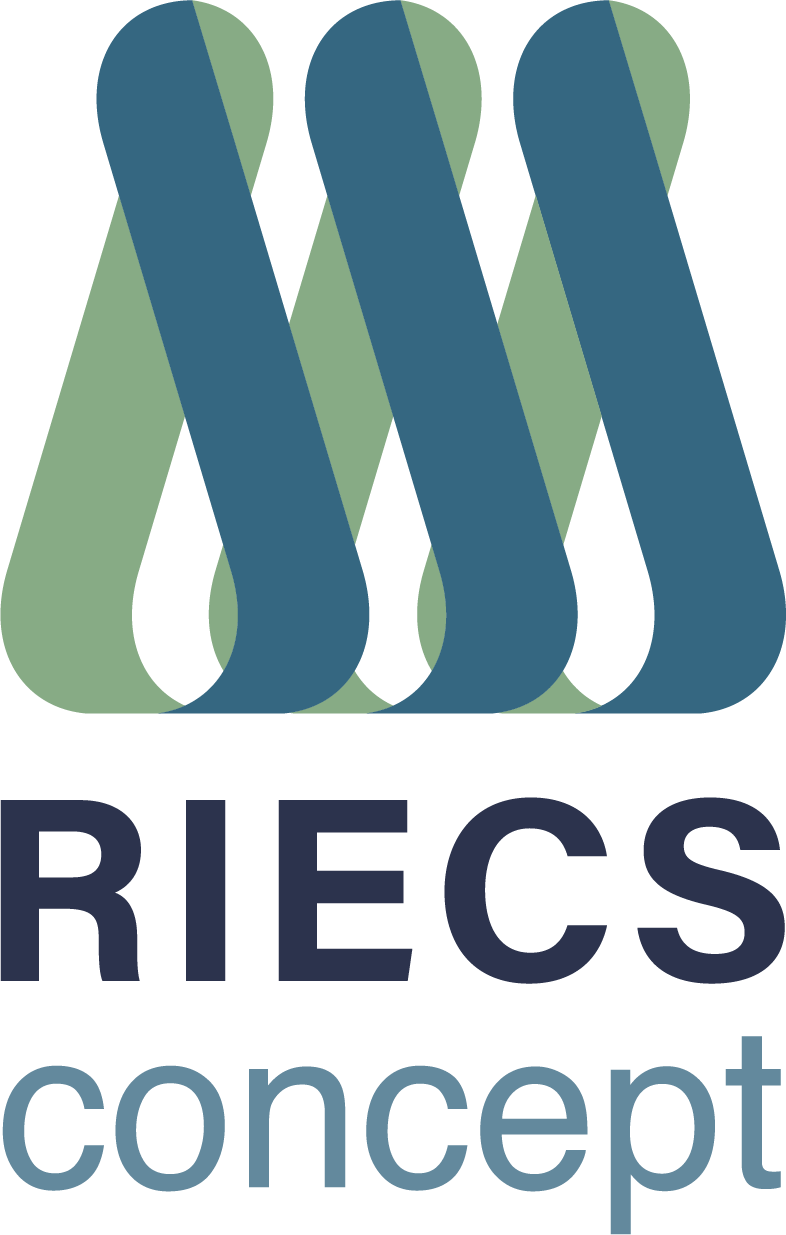The 53rd NORDTEK Conference “Green and Digital University Transformation”
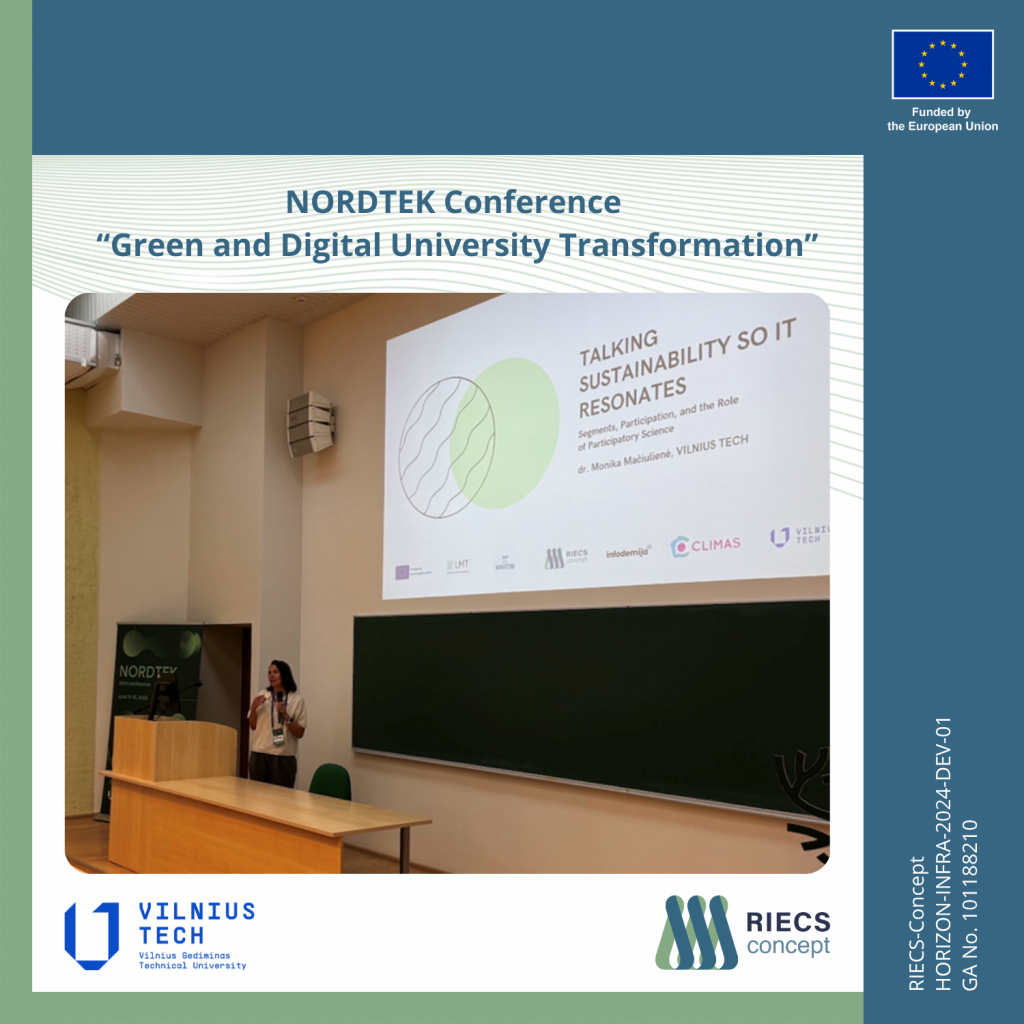
At the 53rd NORDTEK Conference, “Green and Digital University Transformation”, on 11 June, Dr. Monika Mačiulienė, Head of the Citizen Science Hub at VILNIUS TECH and Chief Researcher at RIECS-Concept, offered a different perspective on climate communication: it’s not just what we say – it’s who we’re speaking to, and how.
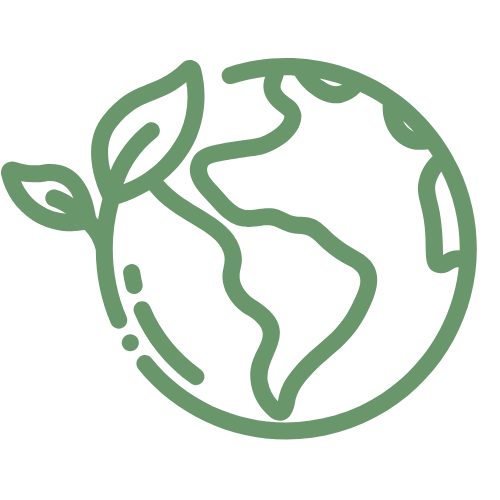
Talking Sustainability So It Resonates
A Citizen Science Perspective from NORDTEK 2025
As Vilnius earns the title of European Green Capital 2025, the 53rd NORDTEK Conference brought Nordic and Baltic technical universities together to ask bold questions about the future: What does it take to make universities engines of green and digital transformation? And how do we bring society along for the ride? One answer? Talk about sustainability in ways that resonate, not only inform.
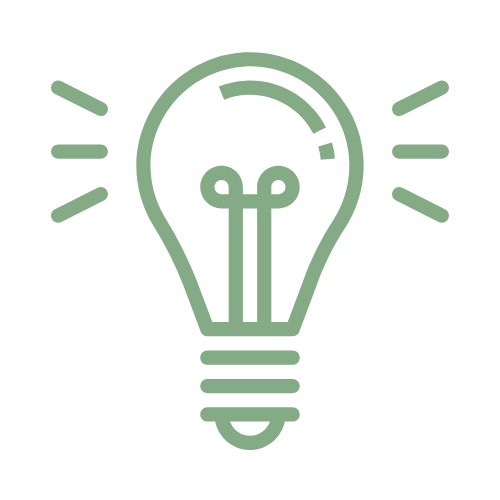
Why Segments Matter
In her presentation “Talking Sustainability So It Resonates: Segments, Participation, and the Role of Participatory Science”, Dr. Monika Mačiulienė offered a different take on climate communication. “Most people say they care about climate change,” she noted. “But concern doesn’t always translate into action. That’s not a knowledge problem – it’s an engagement problem.”
Drawing on recent national survey data, Dr. Mačiulienė introduced four segments of the Lithuanian public: active science enthusiasts, skeptics who still believe in climate change but distrust institutions. Trust is widespread – but fragile. Engagement levels, she showed, are uneven and disconnected mainly from trust in science.
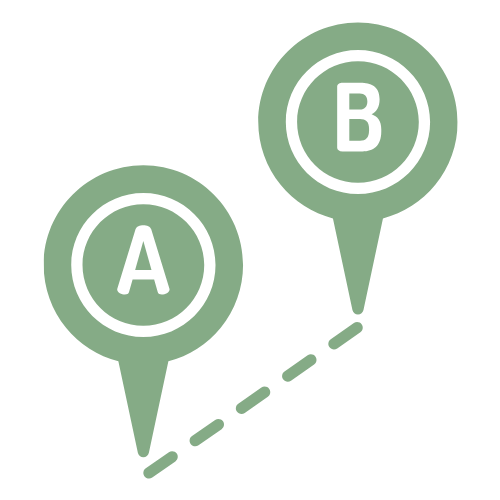
From Passive Outreach to Participatory Science
So, what helps bridge that gap? Participation. Using international evidence and local case studies, her talk showed how citizen science – where the public contributes directly to scientific data collection or problem-solving – can localize sustainability issues, create emotional and cognitive ownership, and rebuild trust through experience.
Local examples included:
✅ “Green Stories”, a cross-border Interreg project where citizens helped document rare plant species and supported biodiversity conservation;
✅ The “Už Švarią Lietuvą” (For a Clean Lithuania) initiative, combining public hiking with waste categorization and data collection, turns environmental cleanup into a national conversation on overconsumption.
These aren’t just outreach campaigns – they’re data-driven, participatory systems that invite people to co-create knowledge and take meaningful action.

A Message for Universities
Dr. Mačiulienė’s talk fits squarely within the broader NORDTEK 2025 theme. Universities looking to lead green and digital transitions must go beyond lectures and laboratories – and start designing participatory pathways that meet people where they are, because sustainable transformation isn’t just a technical challenge.
It’s a communication, trust, and engagement challenge, too. And that means engineering education – and climate science – needs better content and a more inclusive conversation.
Curious how citizen science can reshape our climate future? This is just the beginning.
Stay connected for more insights, bold ideas, and real-world stories that challenge how we think and talk about sustainability. The following conversation might start with you. Don’t miss what’s coming next.
Published 2025-06-19
